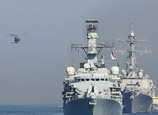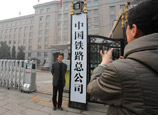
The opposition's move came almost a week after the Arab League demanded it to form a government in order to be given Syria's seat in the bloc based on Qatar's demand.
The coalition itself was formed in Qatar last year under pressure from some Gulf states that have emerged as main backers to the political opposition and the armed rebels of Syria.
The head of the coalition, Moaz al-Khatib, is reportedly going to represent Syria in the upcoming Arab League Summit in Qatar at the end of March. The summit, reports said, will undertake " special decisions" related to arming the opposition.
Aside from political talks, several reports indicated that Qatar and Saudi Arabia have already sent weapons to the armed militias in Syria through Jordan.
The opposition move would probably slam the door before any possible negotiation with the Syrian government, which is still controlling major centers across the country, mainly the heavily fortified capital, analysts say.
The intensity of violence and counter-attacks have stepped up recently ahead of the farce of the opposition's interim government, while observers believe that the rebels are trying to gain more ground to strengthen position before Western and regional powers provide either broader recognition or larger support.
On Sunday, Syria's state-TV said as many as 25 people were massacred in the country's northern province of Hasaka by armed men. The opposition activists also reported shelling and clashes in different hotspots nationwide.
Such incidents were unthinkable before the crisis, but have become daily routine after the two years of unrest that UN says has killed over 70,000 people and pushed one million to seek shelter in neighboring countries.

















 Beijing's 2013 pollution goals set far too low: experts
Beijing's 2013 pollution goals set far too low: experts


![]()
